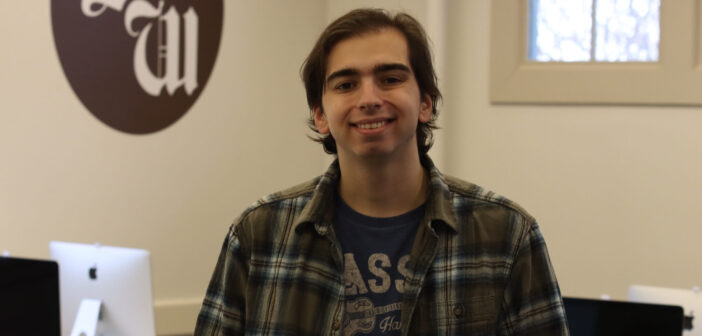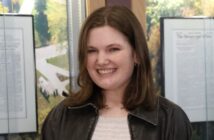I’ve always felt a bit askew from the rest of the world.
For most of my life, I’ve experienced difficulty, more difficulty than I think most people do, with a variety of social and emotional responses. What’s the appropriate amount of eye contact in a conversation? What topics are and aren’t socially acceptable to bring up at dinner? Why do the lights and sounds at the grocery store make me so angry? How do the people around me perceive me? Does everyone else instinctively flap their hands when they’re thinking and no one is around? These aren’t rhetorical questions, I’m genuinely asking.
In my childhood, this was pretty isolating. I didn’t have the vocabulary or the self-awareness to understand myself or the tornado of thoughts constantly overwhelming my internal monologue.
This led me to rely on social anxiety to guide me away from socially awkward encounters.
Once I got to college and began to find my individuality a bit more, I started to critically examine these experiences.
I went through phases of thinking I had OCD, then ADHD and then, for a brief moment, I thought I might be a sociopath. Then I came across the DSM-5 description for autism.
Echolalia, social difficulty, executive dysfunction, sensory issues, problems with eye contact, stimming, poor coordination and balance, deep and uncommon interests, aphantasia and difficulty with tone and inflection. It was like my life experience was being recounted back to me in the cold language of diagnostic criteria. To finally have a word, a specific neurological phenomenon that I can use to understand why my brain is the way my brain is, felt incredibly freeing.
But this is where the conversation gets a bit more complicated.
I do not have an autism diagnosis. I’ve talked to my doctor about it and they’ve contacted a neuropsychologist for a screening, but with the process moving at the speed of American healthcare, it’s unlikely I’ll be able to get an official test in the near future.
So, in the interim, what am I supposed to do with this information? I know the specific symptoms I feel are real, but without the confirmation of an official diagnosis how can I know for sure if the autistic experience is one I can claim? What if I accept and proclaim myself as autistic (say, in an Edit Desk for The Brown and White, for example) when I’m not? That’s so unfair to all the autistic people whose experiences I may be unknowingly disregarding.
But when I cross reference my experience with that of autistic people and when I score in the “very strong evidence for autism” bracket on the RAADS-R I think, “No, I must be.”
That is quickly followed by “But what if I’m not?” and the cycle continues.
Clearly, I need a perspective shift. How important is the label of “autism” in understanding myself? Is it really something I need to have? It would assuage my self-doubt, sure, but my subjective experience is the same whether I doubt it or not.
I’ve thought for weeks about where to take the rest of this article. About how to turn what is effectively me vomiting an incomplete thought process on unsuspecting readers into something you all can benefit from having read.
At first, I thought I’d write something in the canon of “I’ve come to terms with my mind in spite of my uncertainty,” but that felt unearned. I thought about writing an “I’ve turned my uniqueness into a superpower” angle, but that felt cheap.
This is the last piece of my writing that will be published in The Brown and White. I need to write it in the most honest voice I can.
And the truth is, I still haven’t figured all this out.
There are elements of truth in both of my potential endings. I have become a lot more comfortable with living life as I am, regardless of a legitimizing label. I don’t spend much time pathologizing myself. Still, the relationship between me and the word autism is fuzzy and evolving. To say I’ve come to terms with it would not be the truth.
Moreover, I do see some benefits from my unique brain. I have a deep interest in political theory, which has led to my decision to train to become a professor. Still, to say I have an academic superpower is to ignore the many drawbacks that come with possessing it. Not to mention it’d be a pretty arrogant way to end the piece.
I think the most honest way to end this is to leave it here: incompletely argued and messy.
My hope is that by sharing my struggle with understanding myself, I will be able to show someone going through the same thing that they are far from the only person going through it. Maybe my ramblings will provide somebody with the vocabulary I wish I had years earlier. Maybe this makes sense to me and no one else. Either way, leaving it incomplete in my Google Drive isn’t going to help anyone, so it’s worth a shot.






Comment policy
Comments posted to The Brown and White website are reviewed by a moderator before being approved. Incendiary speech or harassing language, including comments targeted at individuals, may be deemed unacceptable and not published. Spam and other soliciting will also be declined.
The Brown and White also reserves the right to not publish entirely anonymous comments.
1 Comment
overexcitabilities
dabrowski
older concept but not so mainstream